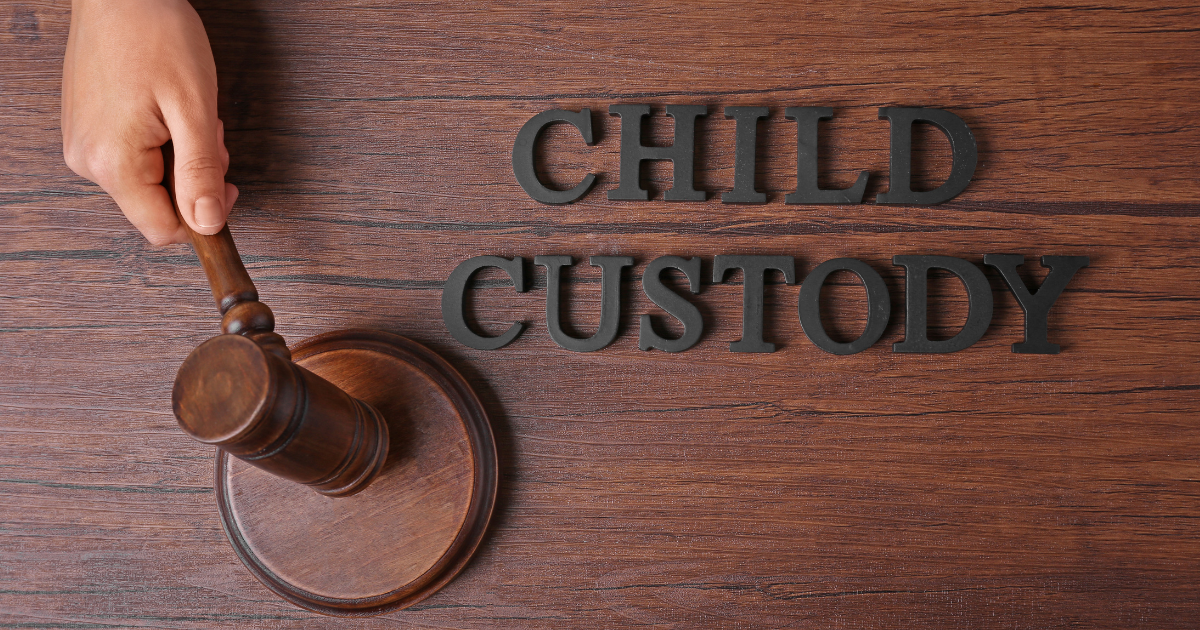Middlesex County Child Custody Lawyer
Few issues are as emotionally charged or impactful on your family’s future as child custody. In New Jersey, the courts prioritize the child’s best interests, but navigating the legal process can feel overwhelming and confusing. Whether going through a divorce, separation, or modifying an existing custody arrangement, having a knowledgeable Middlesex County child custody lawyer by your side is essential to understanding your rights and making informed decisions.
At Thakkar Family Law, we understand the complexities of New Jersey’s child custody laws and are committed to providing compassionate, effective legal representation. Our team will work with you to develop a custody plan that protects your child’s well-being and respects your parental rights.
Types of Child Custody in New Jersey
Child custody in New Jersey is divided into two main types: legal custody and physical custody. Understanding the differences between these two categories is critical when navigating a custody arrangement:
- Legal Custody: Legal custody refers to a parent’s right to make major decisions concerning their child’s upbringing. This includes decisions about education, healthcare, religion, and general welfare. In most cases, the courts prefer to grant joint legal custody, where both parents share responsibility for making these significant decisions. However, there are instances where sole legal custody may be awarded to one parent, typically in situations where it is in the child’s best interest.
- Physical Custody: Physical custody determines where the child will live and the day-to-day responsibilities of their care. Physical custody can either be sole or joint. Sole physical custody means the child resides primarily with one parent, while the other parent may have visitation rights. Joint physical custody means the child spends significant time with both parents, although this does not necessarily mean an even split of time.
How Is Custody Determined in New Jersey?
In New Jersey, the primary consideration in determining custody is the child’s best interest. The court examines various factors to ensure that the custody arrangement will provide for the child’s physical, emotional, and developmental needs. Some of the factors the court will consider include:
- The child’s relationship with each parent.
- The stability of each parent’s home environment.
- The ability of each parent to provide for the child’s needs.
- The child’s preference, depending on their age and maturity.
- Any history of domestic violence or abuse.
- The parents’ willingness to cooperate and communicate when making decisions regarding the child.
Courts aim to provide a custody arrangement that maintains as much stability for the child as possible. It is important to note that gender does not play a role in determining custody; both mothers and fathers are equally considered for custody rights.
Joint Custody vs. Sole Custody
Choosing between joint custody and sole custody depends on several factors, including the parents’ relationship, communication skills, and ability to co-parent. Joint custody allows both parents to remain actively involved in their child’s life, often considered beneficial to the child’s development. However, joint custody requires a high level of cooperation between the parents.
Sole custody may be granted in situations where one parent is deemed unfit due to issues like substance abuse, neglect, or domestic violence. The non-custodial parent may still have visitation rights unless it is determined that contact would harm the child.
Parenting Time and Visitation
When one parent is awarded primary physical custody, the other is generally granted visitation rights, also known as “parenting time.” In New Jersey, the court encourages frequent and ongoing contact between the child and both parents unless there are concerns for the child’s safety.
The visitation schedule, including weekends, holidays, or summer vacations, can be customized to fit the family’s needs. Parents are encouraged to work together to create a visitation schedule that works for everyone involved. If parents cannot come to an agreement, the court will impose a schedule that it deems is in the child’s best interest.
Can a Custody Agreement Be Modified?
Life circumstances change, and sometimes, a custody agreement that worked in the past may no longer be suitable. In New Jersey, either parent can request a modification to the custody arrangement if there has been a significant change in circumstances. Reasons for modifying custody may include a parent’s relocation, a change in the child’s needs, or concerns about the child’s safety.
To modify a custody agreement, the parent requesting the change must show that the modification is in the child’s best interest. This can be a complicated process, and it is recommended that you consult with a Middlesex County child custody lawyer to guide you through the legal steps involved.
Relocation and Child Custody
Relocation is a common issue in child custody cases, especially if one parent wishes to move out of state. In New Jersey, if a parent with primary custody wishes to relocate out of state with the child, they must either obtain the other parent’s consent or seek court approval. The court will carefully evaluate the reasons for the move and how it will impact the child’s relationship with the non-relocating parent.
Relocation cases can be contentious, as they often involve a significant change to the visitation schedule and the child’s daily life. If you are facing a potential relocation issue, it is critical to consult with a lawyer who is experienced in New Jersey custody law to help protect your rights and the best interests of your child.
Custody Disputes and Mediation
Custody disputes can be stressful for everyone involved, especially the children. In New Jersey, the courts encourage parents to resolve custody matters outside the courtroom through mediation. Mediation allows parents to work with a neutral third party to develop a custody agreement that meets the needs of both the parents and the child. This process can be faster, less expensive, and less adversarial than going to court.
However, mediation is not always successful, and some cases may require litigation. If your custody dispute goes to court, it is essential to have a lawyer who is prepared to advocate for your rights and ensure the best outcome for your family.
How Can a Middlesex County Child Custody Lawyer Help?
Navigating the complexities of child custody law in New Jersey can be challenging, but you do not have to face it alone. A Middlesex County child custody lawyer will help you understand your legal rights, guide you through the legal process, and develop a strategy that works for your family. Whether negotiating an initial custody agreement, seeking to modify an existing arrangement, or dealing with a custody dispute, having legal representation can make all the difference.
Your lawyer will advocate for you in court, ensure that your custody arrangement protects your child’s well-being, and work to minimize conflict between you and the other parent. The goal is always to create a custody plan that serves your child’s best interests while preserving your rights as a parent.



